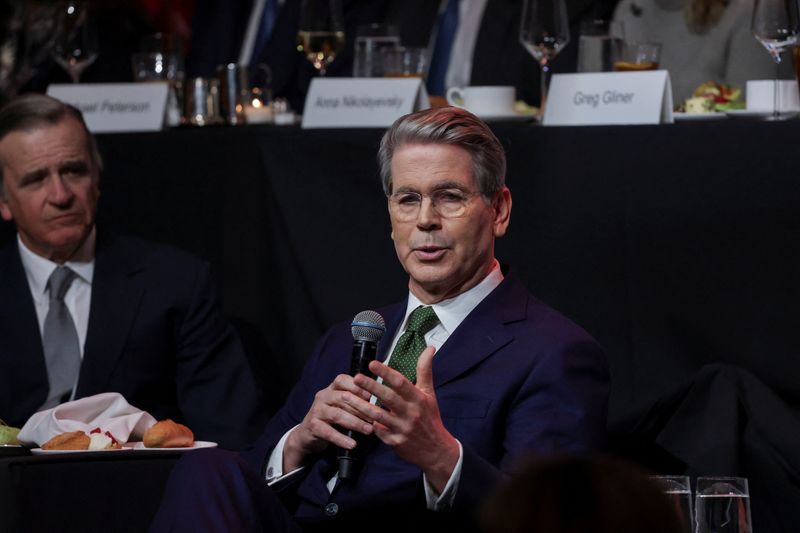Oklo stock tumbles as Financial Times scrutinizes valuation
Investing.com -- U.S. Treasury Secretary Scott Bessent failed to reassure investors amid a sharp selloff Thursday, which has erased nearly half of the previous day’s historic rally, emphasizing that long-term clarity will emerge as trade negotiations unfold.
“As we settle with nations, we will end up in a place of certainty,” Bessent said in the Cabinet meeting, downplaying the day’s losses. “Up two, down one is not a bad ratio, or up 10 down five.”
His remarks came after the S&P 500 gave back a significant portion of Wednesday’s gains, when the index soared more than 9%—its third-best single-day performance since World War II—on news that President Trump would pause most of his reciprocal tariffs for 90 days.
The Dow Jones Industrial Average posted its biggest percentage gain since March 2020, while the Nasdaq had its second-best day on record.
But momentum faded Thursday as investors weighed the lingering risks. Despite the temporary relief, Trump's sharply higher tariffs on Chinese imports remain in place, pushing the overall effective tariff rate to a historic high, according to Morgan Stanley (NYSE:MS).
“Delays help, but do not reduce uncertainty,” said Michael Gapen, the bank’s chief U.S. economist. Analysts caution that, while the 90-day window could offer time for diplomacy, the elevated duties on China may still drag on global trade and growth.
Vital Knowledge analyst Adam Crisafulli said that investors are worried about "the fairly large drop" in the dollar, in addition to the inability of Treasuries to stage a rebound.
"[This] is keeping people anxious about money bleeding out of US financial assets," Crisafulli wrote.
